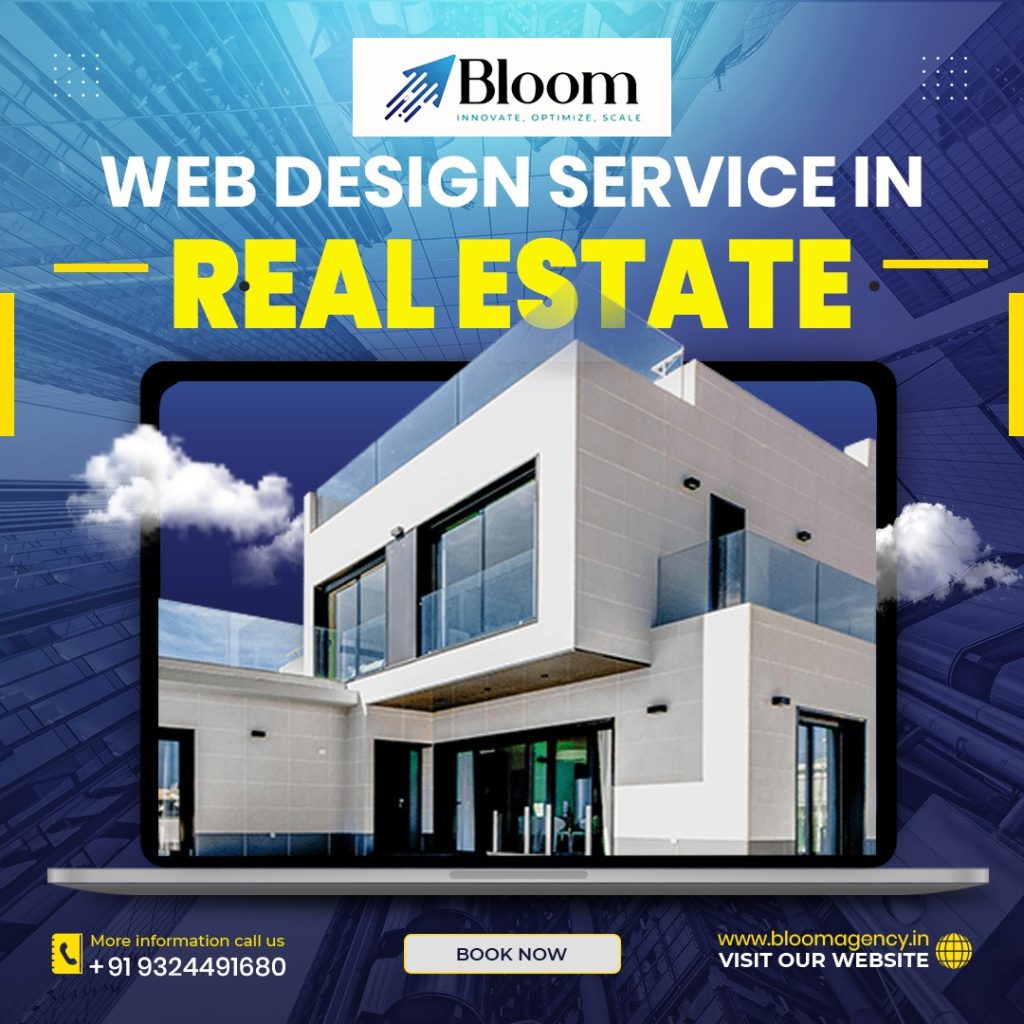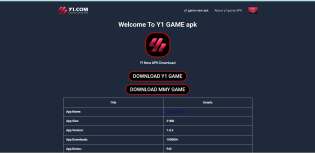A2Bookmarks UAE Social Bookmarking Website
Welcome to A2Bookmarks UAE, where discovering and sharing the latest trends in the UAE becomes an engaging and seamless experience. Our platform is designed specifically for the UAE community, offering a space to explore popular local content, save your favorite websites, and connect with like-minded individuals. With our intuitive interface, you can effortlessly categorize and access your bookmarks, while our vibrant community keeps you updated with the most relevant and captivating content from across the region. Join A2Bookmarks UAE community today and enhance your digital bookmarking journey!


Real Estate Web Development: Building Digital Foundations for Property Success bloomagency.in
Real Estate Web Development: Building Digital Foundations for Property Success
In today’s competitive housing market and commercial real estate sector, having a robust online presence is no longer optional — it’s essential. Real estate web development is the strategic creation of property-centric websites that not only showcase listings but also drive lead generation, streamline communication, and build trust with buyers, sellers, renters, and investors.
Whether you’re a real estate developer, agent, brokerage, or property management company, your website serves as the digital storefront of your brand. A well-designed and high-performing real estate website can be a powerful tool in your marketing arsenal, attracting quality traffic and converting it into loyal clients.
Why Real Estate Businesses Need Custom Web Development
1. Digital-First Buyer Behavior
Over 95% of home buyers search online during their buying journey. Commercial property investors also rely heavily on digital platforms to explore markets, compare options, and connect with agents. A website that’s visually compelling, fast, and easy to navigate keeps visitors engaged and increases the chances of inquiries or conversions.
2. Showcasing Listings Effectively
Your real estate website must do more than display property listings — it should sell them. Features like high-resolution image galleries, virtual tours, property comparison tools, and real-time availability filters can elevate the user experience. With custom development, you gain full control over how listings are structured, presented, and managed.
3. Lead Generation & CRM Integration
Lead capture is at the heart of any real estate business. Custom web development allows seamless integration with customer relationship management (CRM) systems, marketing automation tools, and chat support software to nurture leads effectively.
4. Local SEO Optimization
Real estate is hyper-local. A strategically built website enables on-page optimization for specific cities, neighborhoods, and property types, helping your business rank higher in local searches and Google Maps.
Key Features of a High-Converting Real Estate Website
Let’s explore what makes a real estate website truly powerful and effective:
1. Responsive & Mobile-Friendly Design
Most real estate searches happen on mobile devices. Responsive design ensures that your website looks and functions well across all screen sizes. Touch-friendly navigation, clickable maps, and easy-to-fill forms enhance the mobile user experience.
2. Advanced Property Search Filters
Users should be able to filter properties by criteria such as location, price range, number of bedrooms, square footage, amenities, and more. Custom-built search functionality using dynamic queries ensures fast, accurate, and relevant results.
3. Interactive Map Integration
Google Maps and Mapbox integration help users visualize property locations, nearby amenities (schools, hospitals, public transport), and property clusters. Heat maps can display market trends, rent prices, or demand intensity.
4. IDX/MLS Integration
For real estate agents and brokerages, integrating with MLS (Multiple Listing Services) via IDX feeds ensures that property data is automatically synced and updated. This reduces manual work and ensures users see the latest listings.
5. Virtual Tours and Video Integration
Embedding 3D walkthroughs, drone footage, and video tours elevates the digital experience and builds buyer confidence, especially for luxury or remote properties.
6. User Dashboards
Offer users a personalized dashboard where they can save favorite properties, receive alerts for price changes or new listings, schedule visits, and track inquiries.
7. Lead Forms & Chatbots
Smart contact forms and real-time chatbots engage potential clients and answer queries instantly. AI-driven chatbots can even suggest listings based on visitor preferences.
Backend Development for Real Estate Websites
Behind the scenes, strong backend development supports all front-end features. Here are the core components:
1. Database Architecture
An efficient real estate website needs a scalable and secure database to manage properties, user accounts, appointments, documents, and analytics. Technologies like MySQL, PostgreSQL, or NoSQL (MongoDB) are often used.
2. Admin Panel for Property Management
Create a custom admin panel for agents and admins to easily upload new listings, edit descriptions, add images or videos, and manage leads.
3. Security Features
Given the sensitivity of data (user details, transaction information), implementing SSL encryption, data validation, login authentication, and spam protection is crucial.
4. Content Management System (CMS)
Using platforms like WordPress with real estate plugins or headless CMS options allows easier content editing, blogging, and publishing community updates or market insights.
Front-End Technologies in Real Estate Development
The front end is all about user experience and visual appeal. Popular technologies include:
-
HTML5, CSS3, JavaScript: The foundation of all modern web interfaces.
-
ReactJS / Angular / VueJS: For building dynamic interfaces and single-page applications (SPAs).
-
Bootstrap or Tailwind CSS: For responsive, fast-loading design layouts.
-
Framer Motion or GSAP: To add smooth transitions, interactive elements, and animations.
Real Estate Website Types
Depending on the business model, here are different types of websites that real estate web developers can build:
1. Agent Portfolio Websites
Ideal for showcasing an individual realtor’s expertise, listings, testimonials, and blog content.
2. Brokerage Platforms
Built for agencies managing multiple agents and properties. Includes listing syndication, user dashboards, team pages, and CRM integration.
3. Property Portals
Like MagicBricks, Zillow, or 99acres — these are massive multi-vendor listing platforms where users can search, list, and connect over properties.
4. Real Estate Marketplace Apps
Custom-built web apps for niche markets such as co-living, vacation rentals, student housing, or commercial leasing.
SEO and Marketing Considerations
Web development doesn’t end at launch. SEO, content marketing, and analytics are vital:
1. Technical SEO
Fast-loading pages, schema markup for property listings, mobile optimization, XML sitemaps, and clean URLs help search engines crawl and rank your site better.
2. Content Marketing
Blog posts on property buying guides, neighborhood overviews, investment advice, and real estate news build authority and drive organic traffic.
3. Google My Business Integration
For local visibility, integrating your website with GMB and local directories enhances local search rankings.
4. Conversion Tracking
Tools like Google Analytics, Meta Pixel, and Hotjar help you understand user behavior and improve UX and marketing strategy.
Real Estate Web Development Process
Here’s a step-by-step approach followed by most real estate development agencies:
-
Requirement Gathering – Define the purpose, audience, features, and integrations.
-
Wireframing & UI/UX Design – Create user flow, sitemaps, and design prototypes.
-
Front-End & Back-End Development – Code all site functions and interfaces.
-
Database Setup – Design schemas for listings, user data, etc.
-
Testing & QA – Ensure speed, security, responsiveness, and bug-free performance.
-
Launch – Deploy on a secure hosting platform.
-
Post-Launch Support – Handle updates, new features, and ongoing SEO.
Choosing the Right Real Estate Web Development Agency
Not all developers understand the nuances of the real estate sector. When choosing an agency, look for:
-
Industry Expertise: Familiarity with real estate platforms and integrations.
-
Custom Solutions: Avoid cookie-cutter templates that can’t scale.
-
SEO and Digital Marketing Knowledge: A website is only valuable if people can find it.
-
Ongoing Support: Real estate websites require frequent updates, new listings, seasonal campaigns, etc.
Conclusion
Real estate web development is a strategic investment that can yield long-term growth, high-quality leads, and competitive market visibility. A professionally built website not only enhances your brand image but also provides the digital infrastructure needed to succeed in today’s fast-moving property landscape.
Whether you’re launching a new real estate venture or looking to upgrade your online presence, partnering with an experienced web development agency can unlock new possibilities and future-proof your business in a digital-first world.

















